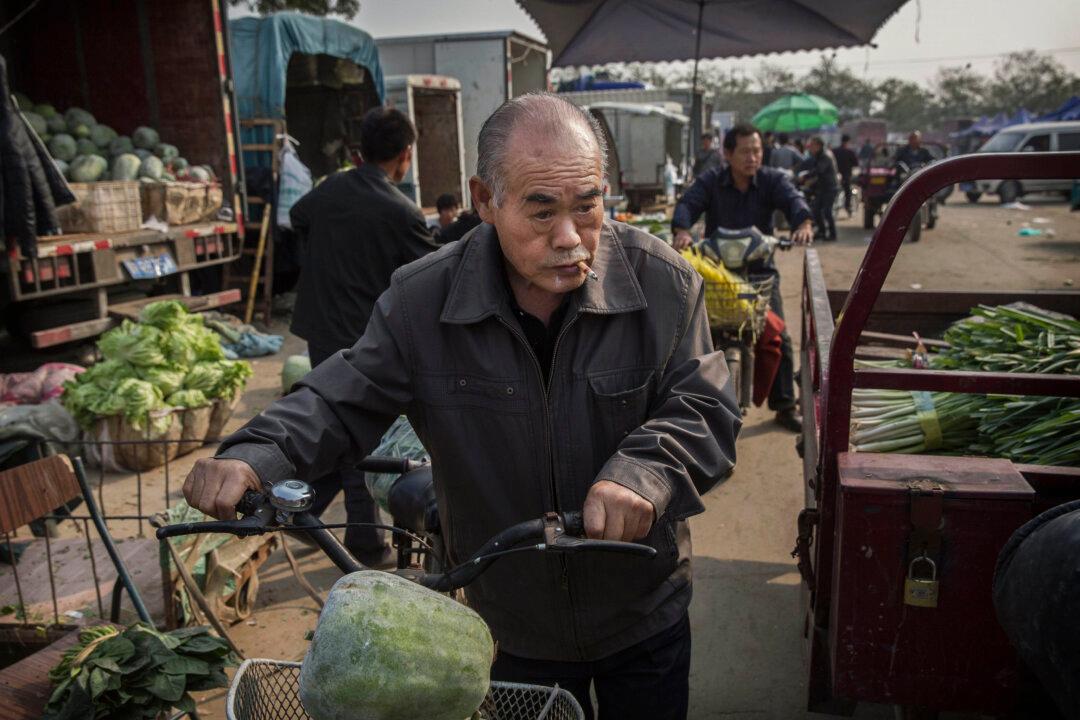After months of speculation, two major Chinese residential real estate developers have defaulted on their bond payments.
In December, Evergrande and Kaisa failed to pay interest due on $1.6 billion worth of U.S. dollar-denominated bonds in aggregate. Evergrande was the highest-profile, as the Shenzhen-based developer had for months tried to raise cash to pay down its $300 billion in liabilities.
Experts had predicted for months that Evergrande would default, which could cascade into a lack of financing for the real estate sector, as most Chinese property developers are highly indebted, effectively culminating in a so-called Lehman moment for the entire Chinese financial sector.
Even the U.S. Federal Reserve warned of risks to the U.S. economy because of contagion from a financial collapse in China. “Financial stresses in China could strain global financial markets through a deterioration of risk sentiment, pose risks to global economic growth, and affect the United States,” the Fed’s most recent financial stability result stated.
But a week after two of the biggest Chinese developers defaulted, there’s little contagion to be found in the market.
The Chinese high yield market staged a small rebound following Evergrande and Kaisa’s default warnings, until the week of Dec. 13, when smaller developer Shimao Group Holdings’ bonds sold off on rumors of financial difficulties. Shimao had been viewed as one of the “strongest” Chinese developers until that point.
This isn’t to say that a bigger challenge won’t torpedo China’s financial system, but Evergrande and “rumors” of financial difficulties aren’t problems too big for the Chinese Communist Party (CCP) to solve today. And this is why Evergrande won’t cause a “Lehman moment” for China.
Let’s rewind back to 2007–2008, when the “Great Financial Crisis” hit the U.S. financial sector. After the collapse of Bear Stearns, Lehman was looked at as potentially the next “domino” to fall as the highly levered New York investment bank’s stock faltered in late summer 2008.
Lehman depended on short-term commercial paper funding, which is a type of short-term note whose availability and liquidity rely on trust and reputation. As the firm’s imminent collapse was rumored, no investor was willing to extend credit to it.
In this case, Lehman was crippled by reputational damage. It was unable to obtain financing and had no federal backstop.
During the weekend of Sept. 13, 2008, the New York Federal Reserve chaired a meeting in which the CEOs and executives of many major New York and international investment banks were in attendance to hash out a rescue plan for Lehman. In the end, two potential suitors, Bank of America and Barclays, declined to purchase the entirety of Lehman (with the former deciding to merge with Merrill Lynch, another bank rumored to be in financial difficulty), leaving Lehman with no choice but to file for bankruptcy ahead of Monday, Sept. 15.
The Fed couldn’t force any of its competitors to rescue Lehman, and ultimately it didn’t deem the company “too big to fail” and step in itself.
Western experts—assessing China using a free market, Western lens—often forget that China is still a socialist planned economy. The CCP controls China today. Any organization, company, or person will engage in an effort at the Party’s command.
A similar type of disaster could have a decidedly different ending in China. The CCP could compel any and all Chinese banks, asset managers, and real estate companies to rescue Evergrande if it chose to go in that direction.
Evergrande declined to pay its offshore bond interest by design. That Beijing regulators expressed to the media that the developer should work out its debt issues with the market means authorities elected to not intervene.
Evergrande could obtain financing if the CCP wanted it to obtain financing. Beijing could compel any of its massive commercial banks to extend credit. It has major government-sponsored asset management firms set up in the late 1990s specifically dedicated to working out bad debt, and could have directed them to buy up Evergrande debt at par. For those firms, it’s been there, done that.
So Evergrande’s “restricted default,” to borrow Fitch’s description, is a policy decision by the CCP.
It’s an engineered default as part of Beijing’s current tightrope management of the country’s real estate market: to not let property prices rise too much yet not allow for a collapse.





